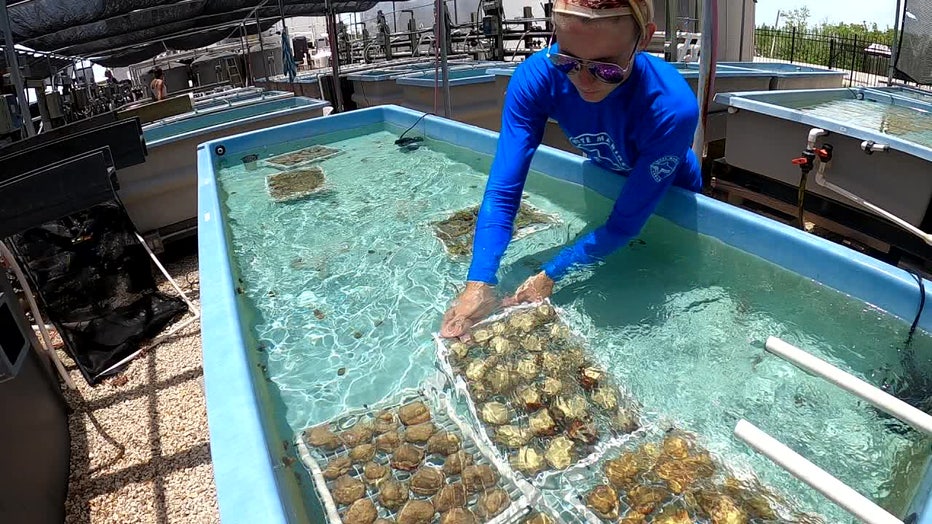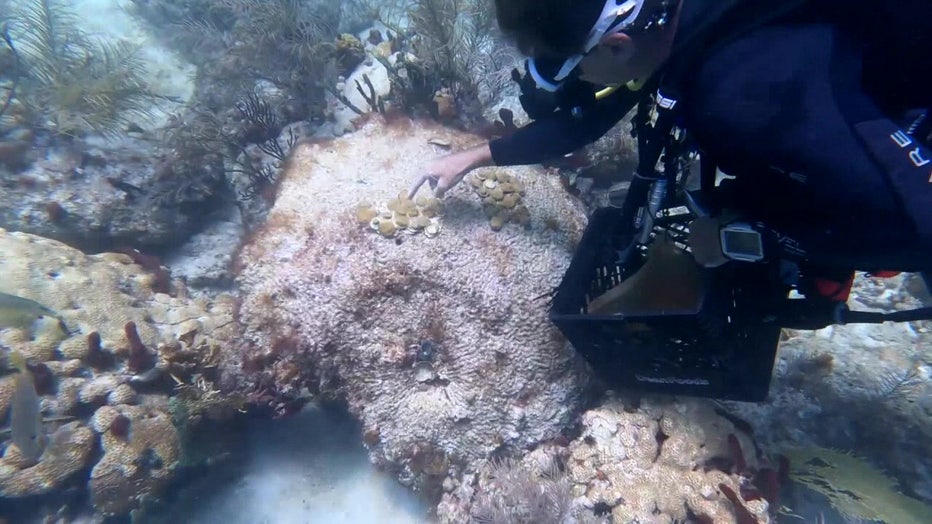Can a scientific 'Noah's Ark' save Florida's coral reef from threatening warm waters?
SARASOTA, Fla. - Florida's coral reef is being threatened by water that's too warm.
Water temperatures of 90 degrees and higher are bleaching the corals, robbing them of their food source, and threatening to kill countless corals, especially in the lower Keys where the water is warmest.
But there's new science aimed at saving corals, and it sounds like a story from the Old Testament.

A Sarasota-based lab has been rescuing corals from submerged nurseries off the Keys.
"Noah's Ark was trying to bring two individuals of each species into a safe environment, and we're doing much the same," said Dr. Jason Spadaro, Mote Marine Laboratory's Coral Reef Restoration Research Program Manager.
READ: Mote Marine’s new SEA Aquarium under construction at Nathan Benderson Park in Sarasota
Scientists, divers, and technicians from the Sarasota-based lab have been rescuing corals from submerged nurseries off the Keys. They're studying which corals are resistant to damage from warm water and disease.
Full interview: Coral restoration efforts at Mote Marine Laboratory
Dr. Jason Spadaro tells FOX 13 the sort of Coral Noah's Ark will be able to help preserve reefs for the future.
Those corals are paired-up to reproduce more resilient offspring.
"Our research has very definitively shown that this works," explained Spadaro.

High temperatures make it harder for corals to survive.
The new, more resilient corals will be the ones they eventually take back to nature and graft onto the coral reef. The most resilient parents and offspring from this sort of Coral Noah's Ark will be able to survive in warmer water and preserve the reef for the future.
READ: Scientists at Florida Aquarium working to restore declining coral reefs along Florida’s coastline
While nobody is suggesting that 90-degree water in the Keys is good, scientists rescuing corals now are also getting new data that could make future generations more resilient.
"In essence, this is a very large natural experiment in that we have the opportunity to help that succession," Spadaro said.
The unprecedented danger to the reef may also shine new light on how it can survive with the help of a scientific Noah's Ark.

